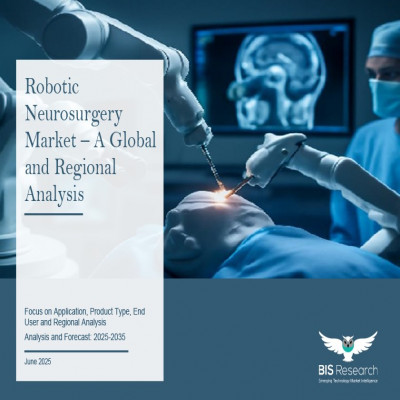A quick peek into the report
Asia-Pacific Robotic Neurosurgery Market
Analysis and Forecast, 2025-2035
Frequently Asked Questions
The Asia-Pacific robotic neurosurgery market is projected to reach $587.0 million in 2035 and estimated $92.6 million in 2025, growing at a CAGR of 20.28% during the forecast period 2025-2035.
Key technological advancements driving robotic neurosurgery in APAC include AI-powered navigation, real-time 3D imaging, haptic feedback systems, and miniaturized robotic arms for minimally invasive procedures. Integration with augmented reality and machine learning enhances surgical precision, while local innovations are making systems more affordable and accessible across diverse healthcare settings.
The following are the USPs of this report:
• Key trends
• Regulatory framework
• Patent analysis
• Case study
• Reimbursement Scenario
• Supply Chain Analysis
• Pricing Analysis
• Active players in the robotic neurosurgery ecosystem
• Market dynamics (including drivers, restraints, and opportunities) and their impact analysis
• Region and country-level analysis, including market dynamics, market size, and forecast
Hospitals and Healthcare Providers: Hospitals and ambulatory surgical centers are primary end users of neurosurgical robotic systems. These institutions benefit from understanding market trends, technological advancements, and competitive landscapes to guide investment and adoption strategies.
Medical Device Manufacturers: Companies developing or planning to develop robotic neurosurgery systems or related technologies need detailed market insights to identify growth opportunities, assess competition, and guide research and development efforts.
Investors and Venture Capitalists: Investors seeking to fund innovative healthcare technologies can utilize these reports to assess market potential, forecast returns, and identify key players and emerging trends.
Regulatory Bodies and Policymakers: Understanding the evolving market enables regulators and policymakers to develop appropriate frameworks that support innovation while ensuring patient safety.
Yes - there are significant government and private initiatives supporting robotic surgery innovation across APAC. Governments are funding R&D and establishing innovation hubs to advance medical robotics. Countries like South Korea, Singapore, and India are supporting startups, offering grants, and developing collaborative ecosystems to boost adoption and localization of robotic surgery technologies.

